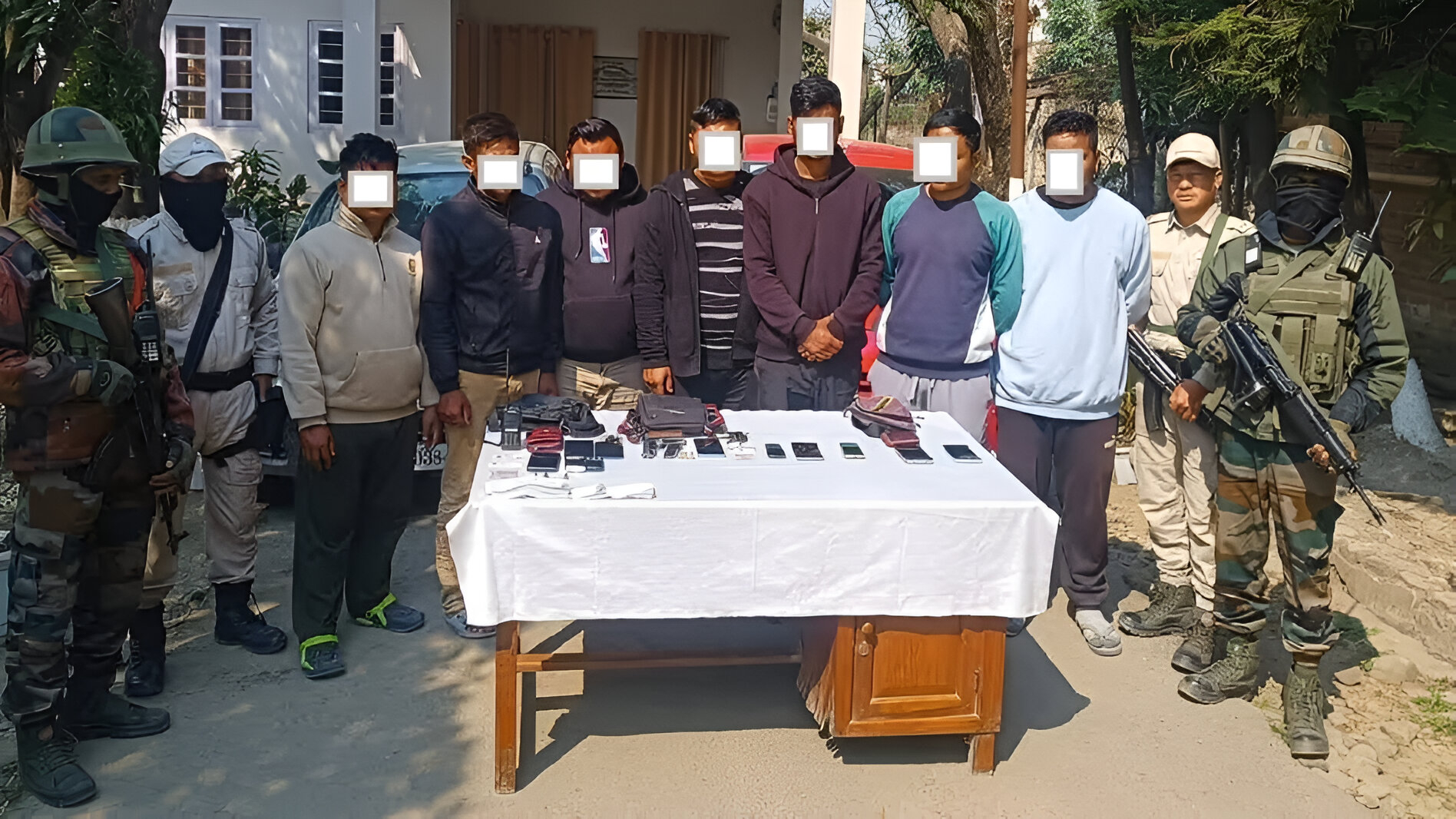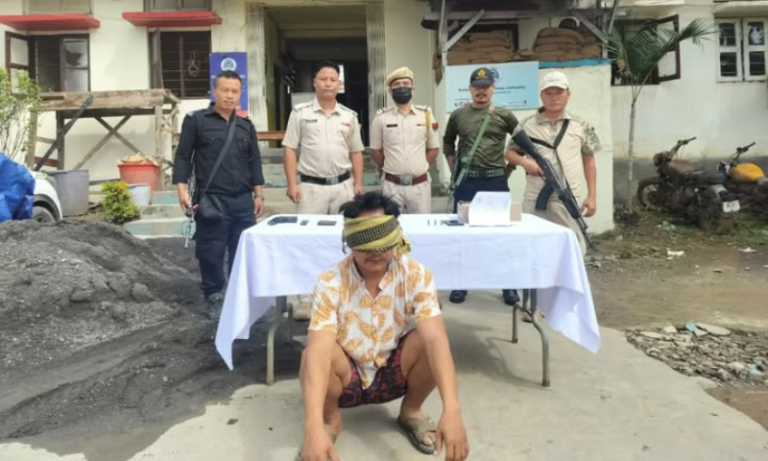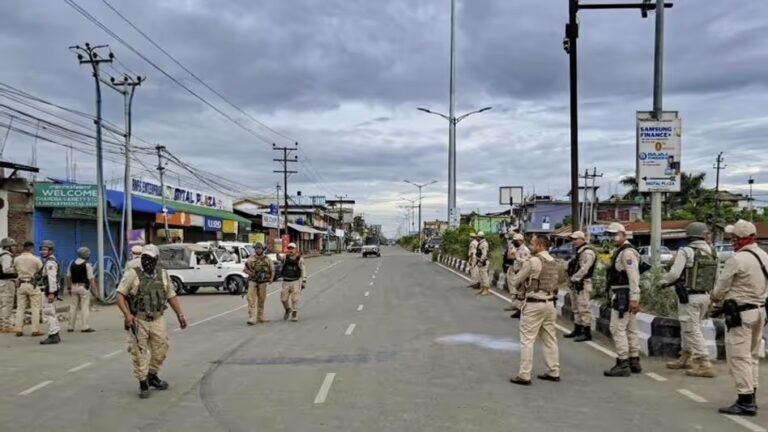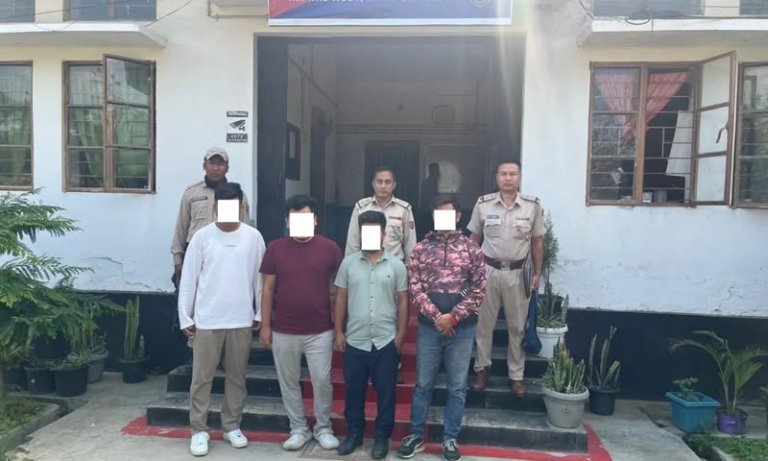Manipur Security Forces Arrest 12 Militants in Separate Operations
In a series of coordinated operations, security forces in Manipur have apprehended 12 militants affiliated with various insurgent groups. These arrests underscore the ongoing efforts to restore peace and stability in the region.
A Closer Look: Unraveling the Recent Militant Arrests in Manipur
Manipur, a state nestled in the northeastern corner of India, has long been a tapestry of diverse cultures, traditions, and, unfortunately, conflicts. The recent arrest of 12 militants by security forces has once again spotlighted the intricate dynamics of insurgency in the region. Let’s delve deeper into this development, exploring the context, the operations, and the broader implications for Manipur’s quest for peace.
Understanding Manipur’s Insurgency Landscape
To truly grasp the significance of these arrests, it’s essential to understand the backdrop against which they occurred. Manipur’s history is marked by a complex interplay of ethnic identities, political aspirations, and socio-economic challenges. This milieu has given rise to numerous insurgent groups, each with its own agenda, often leading to prolonged periods of unrest.
The Recent Operations: A Breakdown
In February 2025, following the imposition of President’s Rule due to escalating violence, security forces intensified their operations across the state. Within a span of 48 hours, 12 militants from various underground outfits were apprehended.
Who Were the Arrested Militants?
The arrested individuals were identified as cadres from different insurgent groups operating in Manipur:
- Kuki National Army (KNA): Seven suspected members were arrested from the Old Khaukual area in Churachandpur district. indiatvnews.com
- Kangleipak Communist Party (KCP): Five members were apprehended from the El Minou Ridgeline area in Tengnoupal district. indiatvnews.com
Seizure of Arms and Ammunition
The operations also led to the recovery of a significant cache of arms and ammunition, including:
- From KNA Cadres: Details about the specific weapons seized were not disclosed in the reports.
- From KCP Members: The exact nature of the arms and ammunition recovered was not specified in the available information.
The Impetus Behind the Operations
The imposition of President’s Rule on February 13, 2025, acted as a catalyst for these intensified operations. The central administration aimed to restore law and order in the state, which had been marred by ethnic violence and insurgent activities. The swift action against militant outfits was a clear message of zero tolerance towards insurgency.
The Ripple Effect: Community Reactions
The arrests elicited varied reactions from different communities:
- Protests by Women’s Groups: In some areas, particularly in the Imphal valley, women’s groups protested the arrests, claiming that those apprehended were village volunteers protecting their territories. They demanded the revocation of President’s Rule and the release of the detained individuals. economictimes.indiatimes.com
- Surrender of Firearms: In a positive development, following appeals from the Governor, at least 15 firearms were voluntarily surrendered to the police in three districts. This indicated a willingness among some sections to move towards peace. business-standard.com
The Larger Picture: Manipur’s Path to Peace
The recent arrests are a microcosm of the broader challenges and efforts in Manipur:
- Ethnic Tensions: The state has witnessed clashes between different ethnic groups, notably the Meitei and Kuki communities. These tensions have often been exploited by insurgent groups to further their agendas.
- Government Initiatives: The central and state governments have periodically initiated peace talks, ceasefire agreements, and development projects to address the root causes of insurgency. The recent operations reflect a dual strategy of counter-insurgency measures coupled with outreach for peace.
- Role of Civil Society: Organizations and community leaders play a pivotal role in bridging divides, fostering dialogue, and promoting non-violent resolutions to conflicts.
Conclusion: A Ray of Hope Amidst Challenges
While the arrest of 12 militants is a significant achievement for security forces, it also underscores the persistent challenges in Manipur. The path to lasting peace is fraught with complexities, requiring a holistic approach that addresses security concerns, socio-economic disparities, and ethnic sensitivities. The recent developments, including the voluntary surrender of firearms, offer a glimmer of hope. With sustained efforts from all stakeholders, Manipur can aspire to transform its narrative from one of conflict to one of harmony and progress.
FAQs
- What led to the imposition of President’s Rule in Manipur in February 2025?
- Escalating ethnic violence and a deteriorating law and order situation prompted the central government to impose President’s Rule to restore stability.
- Are the arrested militants part of banned organizations?
- Yes, groups like the Kuki National Army (KNA) and Kangleipak Communist Party (KCP) are among the insurgent outfits operating in Manipur.
- How has the local population reacted to these arrests?
- Reactions have been mixed. While some support the crackdown on insurgents, others, particularly women’s groups, have protested, claiming the detainees were community volunteers.
- What measures are being taken to address the root causes of insurgency in Manipur?
- The government is focusing on development projects, initiating peace talks, and promoting socio-economic integration to address underlying issues.
- Has there been any progress in disarmament efforts in the state?
- Yes, following appeals from authorities, several firearms have been voluntarily surrendered, indicating a positive shift towards peace.




